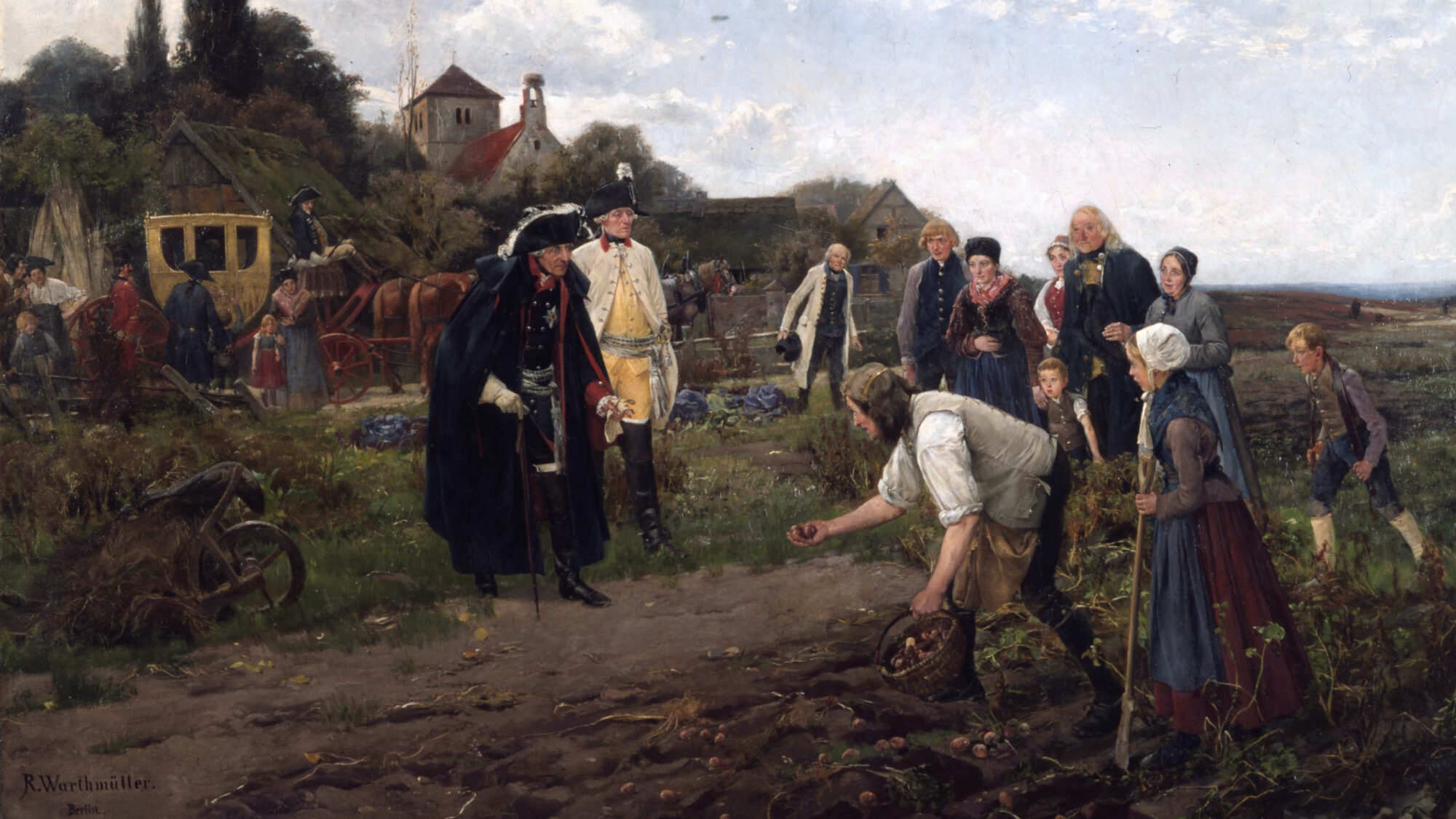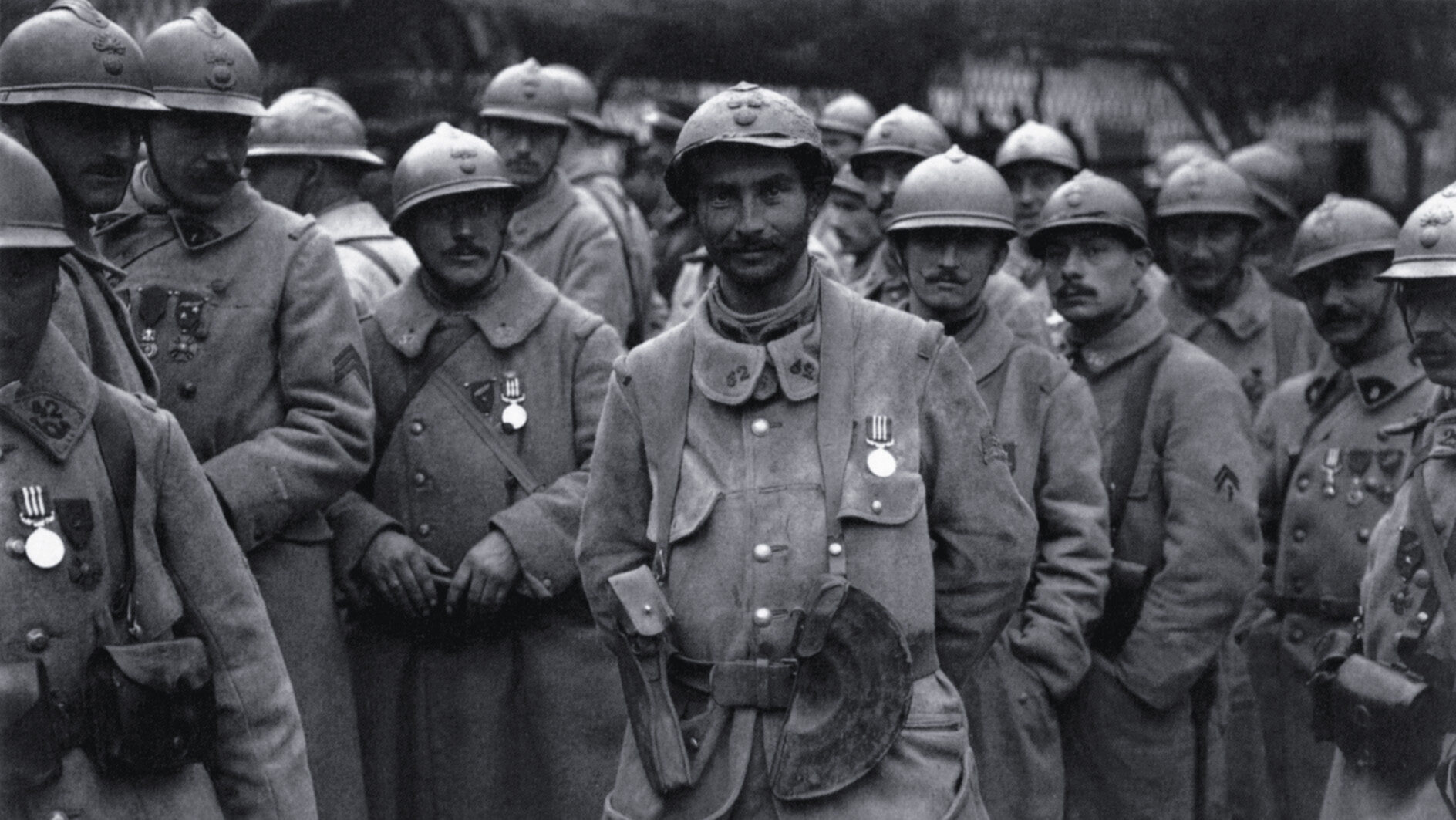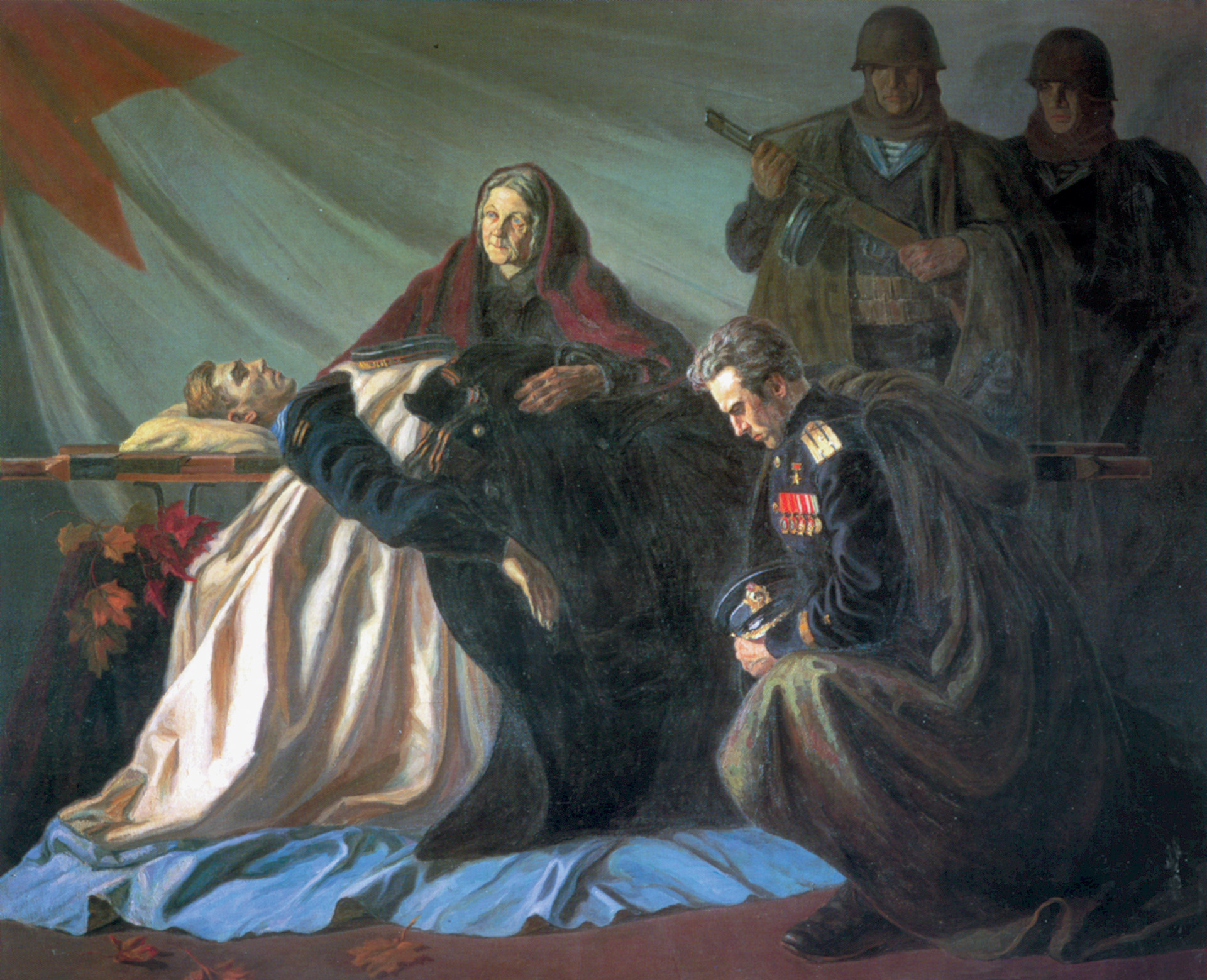By Roy Morris Jr.
Befitting his grandiose nickname, Frederick the Great was a living embodiment of the old axiom that some people are born great, some achieve greatness, and some have greatness thrust upon them. With Frederick, it was a little of all three, and it came at a terrible cost, physically and emotionally.
As the son of Prussian King Frederick William I, Frederick was born into greatness—the crown was his from birth. But it was not easy. His father, grim, abusive, and cold-hearted, cared for little except his burgeoning army. Habitually clad in a blue military uniform, Frederick William scorned his own father’s patronage of the arts in favor of the sober Prussian virtues of discipline, strength, and militarism. He sought to impart these values, often violently, to his eldest surviving son. On several occasions the king publicly beat Frederick in front of the royal court, once smashing him in the face with a cane and bloodying his nose.
Unsurprisingly, the youth rebelled. Although surrounded by heavy-handed tutors whom the king had enjoined to avoid any traces of foppery or intellectualism, Frederick grew into a cultured, sensitive young man who wrote poetry and composed music. “Fritz is a flute player and a poet,” his father grumbled. There were also rumors, never proven, that the prince was homosexual. The king himself warned his son to “bear in mind that I can’t bear effeminate fellows, who have no normal human inclinations, who do shameful things, who can’t ride or shoot, [and] who grow their hair long and curl it like fools.”
Frederick defied his father as much as he could, mocking him behind his back while feigning slavish obedience to his face. He particularly abhorred the king’s devotion to hunting—the monarch and his courtiers once killed 3,000 wild boars in one month’s time—observing that “to kill for pleasure is odious.” He preferred instead to read, write, and compose music, all in French, much to his father’s annoyance.
Frederick William Spared His Son but Ordered Katte Beheaded
When he was 18, Frederick and his older sister Wilhelmina became unwitting pawns in a power struggle between Austria and Great Britain, a struggle that centered on the pair’s proposed double marriage to their English cousins, the Prince of Wales and Princess Amelia. Frederick’s mother, Queen Sophia Dorothea, was the sister of the new king of England, George II, and naturally sought to forge even closer ties between the two royal families. Frederick William, unsurprisingly, opposed the marriages. The king interceded to end the long-distance courtships, and by doing so inadvertently drove his son to a desperate act of insubordination.
With the help of sympathetic noblemen, Frederick planned to flee to England and marry Princess Amelia in defiance of the king. His best friend, Hans Hermann von Katte, an officer in the Prussian Army, agreed to accompany Frederick to France, where he would obtain temporary sanctuary before crossing the Channel to England. At the last moment, another conspirator informed the king of his son’s intentions. Furious, the king had Frederick and Katte arrested and thrown into prison. Since the prince was technically a lieutenant colonel in the army, he faced court-martial and a potential sentence of death.
The court-martial refused to condemn either Frederick or Katte, leaving it up to the king to decide their fates. Frederick William spared his son but ordered Katte beheaded for his role in the plot. He then had the executioner’s block placed directly below Frederick’s cell window and forced the prince to watch his best friend die at the edge of a sword. At the fatal stroke, the prince fainted dead away. When he woke, he learned that his father had pardoned him. Ten years later Frederick ascended to the throne of Prussia, having learned a painful and protracted lesson in filial obedience. It was a lesson he never forgot.









Join The Conversation
Comments
View All Comments